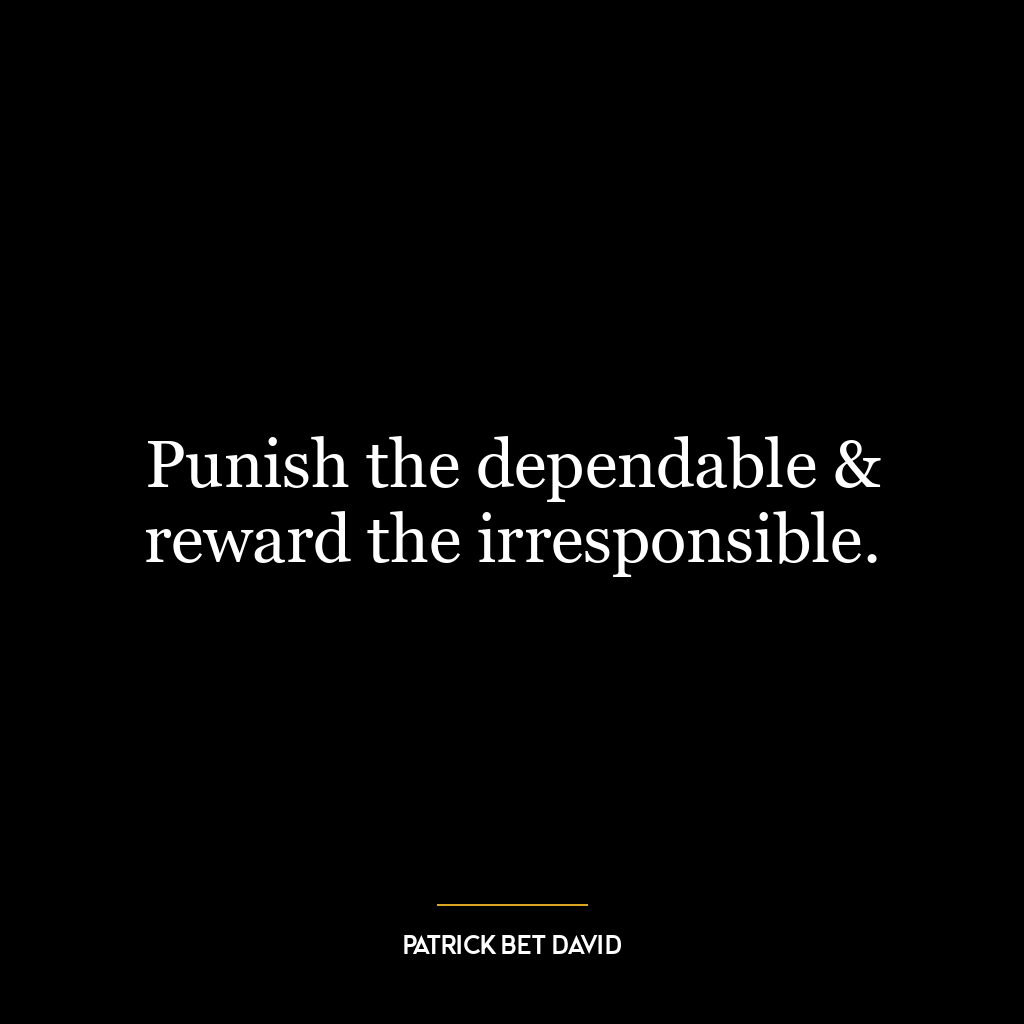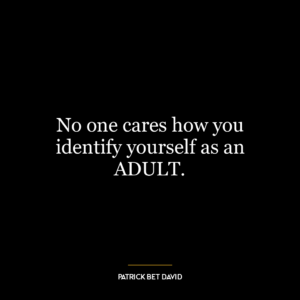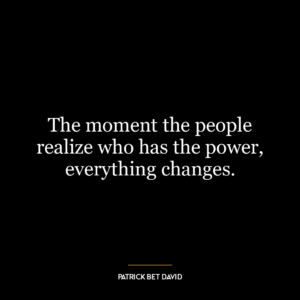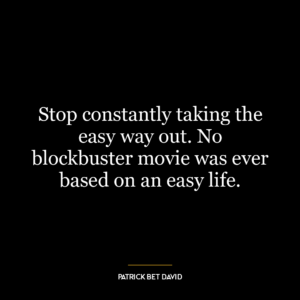Punish the dependable & reward the irresponsible.
“Punish the dependable & reward the irresponsible” is a thought-provoking statement that seems counterintuitive at first glance. It seems to suggest that those who are reliable should be penalized, while those who act irresponsibly should be rewarded. However, if we delve deeper into the implications of this statement, it may not be as straightforward as it initially appears.
A possible interpretation could be that the statement is a critique of complacency and an encouragement to take risks. In this context, the “dependable” might represent individuals who are always playing it safe, sticking to the status quo, and avoiding any kind of risk or change. They are dependable, yes, but they may also be stagnant, with little room for growth or innovation. “Punishing” these individuals could be a call to challenge them, to push them out of their comfort zones, and to encourage them to take risks and strive for improvement.
On the other hand, the “irresponsible” could represent those who are willing to take risks, to challenge the status quo, and to innovate. These individuals may be seen as irresponsible because they are not always following the tried and true path, and their actions can sometimes lead to failure. However, they are also the ones who bring about change and progress. “Rewarding” these individuals could be a way to encourage this kind of risk-taking and innovation.
In today’s fast-paced and ever-changing world, this idea is highly relevant. In business, for example, companies that stick to the same old strategies and refuse to innovate are often left behind. Those that are willing to take risks and try new things, on the other hand, are often the ones that succeed.
In terms of personal development, this idea encourages individuals to step out of their comfort zones and to take risks in order to grow and improve. It suggests that it is better to try and fail than to never try at all. In this way, the quote can serve as a powerful motivator for personal growth and development.















